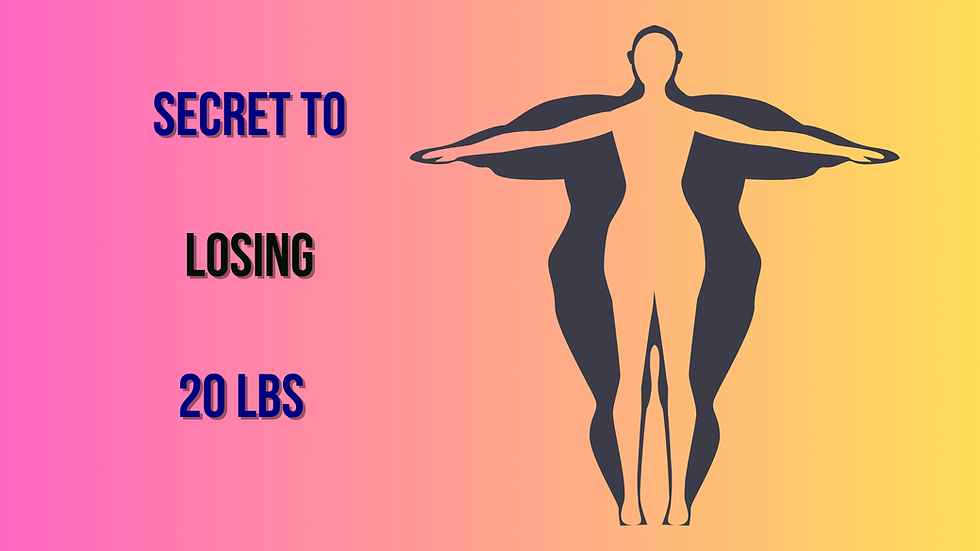Carbohydrates and Weight Gain: Is There a Connection?
- coreveinternationa

- Jan 17, 2023
- 4 min read

There is a lot of debate in the fitness and nutrition world about whether or not carbohydrates are to blame for weight gain. Some people say that carbs are essential for energy and should be a part of any healthy diet, while others claim that they are the main culprit when it comes to packing on the pounds.
So, what's the truth? Are carbs really bad for you? And if so, what is the best way to reduce or eliminate them from your diet? In this blog post, we will take a closer look at the evidence and see if there is a connection between carbs and weight gain. We will also discuss the keto diet, which is a low-carbohydrate diet that has been shown to be effective for weight loss. If you're wondering whether cutting carbs could help you lose weight, read on!
Carbohydrates and Weight Gain
Recent research has revealed a connection between an excessive intake of carbohydrates and weight gain. A diet high in carbohydrates can result in increased fat levels, which puts individuals at a higher risk for health problems such as heart disease, diabetes, hypertension, and stroke.
Although carbohydrates are essential for normal functioning body processes, eating more than the body needs can lead to storage of excess carbohydrates as fat. Reducing dietary carbohydrate intake is important for overall health and optimal weight management.
As it is often said, 'knowledge is power' and understanding the link between carbohydrates and weight gain can help individuals make better dietary choices that support their health and fitness goals.
Why People Gain Weight Consuming Carbohydrates
There are multiple reasons why people tend to gain weight when they consume carbohydrates. Carbohydrates provide energy for the body and as such often contain a lot of calories. If more energy is consumed than is used, it can cause weight gain.
Similarly, if these carbohydrates are incorporated into an already calorie-dense diet, it can lead to an intake that outweighs energy levels leading to weight gain over time.
Additionally, some studies suggest that those who consume simple or refined carbohydrates may be more likely to gain extra pounds due to them being digested quickly and triggering hormonal changes that can cause hunger and cravings, resulting in further consumption.
Whatever the reason may be, understanding how calorie-intake relates to carbohydrate consumption is key in preventing any long-term effects on body weight.
Consider a Keto Diet To Control Carbohydrate Intake
The keto diet is a revolutionary way to control your carbohydrate intake and promote weight loss. In the keto diet, you sharply reduce your intake of carbohydrates and instead rely on high levels of fats and proteins for energy. This shifts the body into a state called "ketosis," which increases metabolic rate, reduces hunger cravings, and burns fat more effectively.
Not only is keto seen as an effective way to manage your weight, but also it may be beneficial for numerous health conditions, such as reducing risk of chronic disease and improving cognitive performance. The keto diet is even reported by some experts to have additional health benefits like improving insulin sensitivity, reducing inflammation, and providing more consistent energy levels throughout the day. With careful planning and implementation, this eating plan can be very effective in promoting weight loss and living a healthier lifestyle.
How the Keto Diet Works
The keto diet is a low carb, high-fat nutrition plan that drastically reduces carbohydrate intake in order to promote the body into a state of ketosis. When the body enters this state, it starts burning fat and releasing ketones - molecules produced when fats are broken down - into the bloodstream to be used as fuel, instead of relying on carbs from food.
Common foods allowed on the diet include high-fat items like fatty cuts of meat and fish, full-fat dairy products, certain oils and fats, some vegetables such as leafy greens, avocados and nuts. Most fruits should also be avoided due to their natural sugar content.
This dietary approach can lead to significant health benefits such as improved blood sugar levels, increased mental clarity and energy, reduced inflammation and possibly even weight loss if done correctly.
Tips for Success Being On a Keto Diet
Embarking on a keto diet is no small feat. Staying on the path towards success is difficult without the right combination of self-discipline and knowledge. To ensure you're properly meeting the goals of your keto diet, it's important to understand two key elements: hydration and sleep.
Hydrating your body with plenty of water helps produce extra energy and can ward off dehydration headaches common to diets like this one. Additionally, getting enough restful sleep equips your body with the ability to process foods more efficiently, allowing you to make better dietary decisions overall.
Following these two tips for success will lead you closer than ever to reaching your health-related goals!
Final Thoughts
I believe carbohydrates do play a role in weight gain and should be considered when making dietary decisions. However, it is important to remember that all types of food can contribute to weight gain if consumed excessively or without balance.
The ketogenic diet offers an effective way for people who are looking to lose weight by reducing their carbohydrate intake while still maintaining adequate nutrition levels. By following the guidelines of this low-carbohydrate diet, you may find yourself able to reach your desired health goals faster than with other diets.
Ultimately, whatever plan you choose for your own personal situation should always include moderation and balanced consumption as key components of success. With the right plan in place, you can successfully manage your weight and live a healthier lifestyle.



Comments